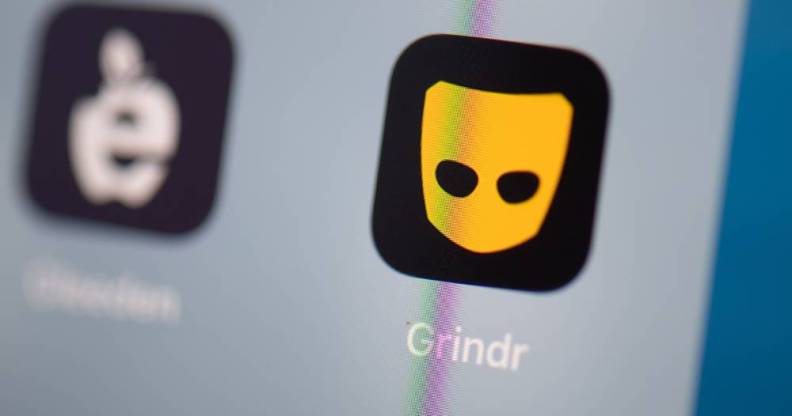Grindr disappears without warning from multiple app stores in China

Queer dating app Grindr. (Martin Bureau/AFP via Getty)
Grindr has disappeared from multiple app stores in China amid reports of a crackdown on online content in the country.
The queer dating app has seemingly been removed from Apple’s app store in China, AFP reported. Searches for Grindr on Android and similar platforms operated by Chinese firms also produced no results.
Bloomberg reported mobile research firm Qimai found that Grindr disappeared from the Apple app store on 27 January. It’s unclear when the Android version was removed.
However, local Grindr competitors like Blued are still available on app stores in the country, according to Bloomberg.
The takedowns come just days after Chinese officials announced a crackdown on what they deemed as illegal online content including pornography, rumours and other “ill-natured” activities.
The Cyberspace Administration of China’s month-long campaign aims to “create a civilised, healthy, festive and auspicious online atmosphere for public opinion during the Lunar New Year”, according to a statement by the administration.
Grindr’s removal also comes just days before the start of the 2022 Beijing Winter Olympics, which is set to kick off on Friday (4 February).
At least 35 openly LGBT+ athletes will be competing at the Winter Olympic Games in Beijing, according to Outsports. This is over double the number of out queer athletes who competed at the 2018 Winter Olympics in Pyeongchang, South Korea.
The 2018 games saw a total of 15 openly LGBT+ athletes compete at the global sporting competition.
Homosexuality was decriminalised in China in 1997, but LGBT+ people in the country still lack many rights.
China still does not recognise same-sex marriage, and there are no legal protections in place to protect LGBT+ people from discrimination in China. It wasn’t until 2001 that homosexuality was declassified as a mental disorder.
In recent months, there have been growing fears of a government crackdown on the LGBT+ community.
Several LGBT+ led accounts were allegedly removed from Chinese social media and messaging app WeChat in July. The groups told Reuters they had been locked out of their accounts, and some said that all of their content had been deleted from the app.
One account manager said they were “censored without any warning”, adding “all of us have been whipped out”.
There were reports in August that Shanghai University was compiling a list of LGBT+ students. According to a leaked document, the university had asked schools and colleges within its network to report details of all “non-heterosexual” students.
The university also allegedly asked schools to collect information on LGBT+ students’ political views, social contacts and life plans. It also urged schools to gather information on students’ “psychological condition” and report if they had any “mental disorders”.
In September, China’s government banned depictions of “sissy” effeminate men from being on TV. The government’s TV regulator told broadcasters that they must “resolutely put an end to sissy men and other abnormal aesthetics” on screens.
The broadcasters were also told not to promote any “vulgar internet celebrities” or any figure that has “lost morality”.
The official instruction was part of a “national rejuvenation” campaign by president Xi Jinping to enforce traditional “morality” by tightening the government’s grip on businesses and society.

